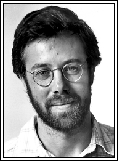Poverty of the Heart
by
Llewellyn Vaughan-Lee

Last night my teacher taught me the lesson of Poverty:
"Having nothing, and wanting nothing." -Rumi
The Sufi Path takes the Wayfarer beyond the world of forms into the formless, beyond the mind into the heart. On this journey every desire is a limitation.
An intending disciple said to Dhol-Nun the Egyptian: "Above everything in this world I wish to enroll in the Path of Truth." Dhol-Nun told him: "You can accompany our caravan only if you first accept two things. One is that you will have to do things that you do not want to do. The other is that you will not be permitted to do things that you desire to do. It is 'wanting' which stands between man and the Path of Truth."
Those who travel along this path are known in the East as "dervish" (darwish in modern Persian), a term which refers to their holy poverty: "the poor man is not he whose hand is empty of provisions, but he whose nature is empty of desires."
This is a state of both helplessness and freedom, for the Wayfarer, without desire or direction, has nowhere to go. If everything must be given up, then even the desire for spiritual progress is a limitation. The road that seemed to lead to a far distant horizon is seen as just another illusion. For the seeker who has followed the path of longing and placed all his values in the idea of the quest, it can be very hard to give up this last attachment. But not only must this world be given up; any idea of spiritual transformation must also be abandoned. Such total poverty is the real patched coat of the Sufi.
A dervish wearing a sackcloth coat and woolen cap once came to meet Master Abu Ali. One of Abu Ali's disciples tried to humour him, saying, "How much did you purchase that sackcloth for?"
The dervish answered, "I purchased it for the sum of the world. I was offered the hereafter in exchange, but refused to trade."
Spiritual poverty is to be totally naked, to be a formless piece of wax in which He can stamp His Name. Because this state is beyond desire, poverty cannot be sought. Like everything that belongs to Him, it is given as a gift. The path takes the wayfarer to where he can travel no further and is left in a state of desolation and hopelessness. Then, when the seeker accepts there is nowhere else to go -- when the path seems to lead to a total dead end -- then there is freedom, freedom born from the deep realization that there is nothing one can do. It is in this newfound emptiness that spiritual life really begins.
Llewellyn Vaughan-Lee 
Excerpt from 'The Call and the Echo: Sufi Dreamwork & the Psychology of the Beloved'
CrescentLife: Spirituality/Sufism
Back to Aprentice Weavers
|